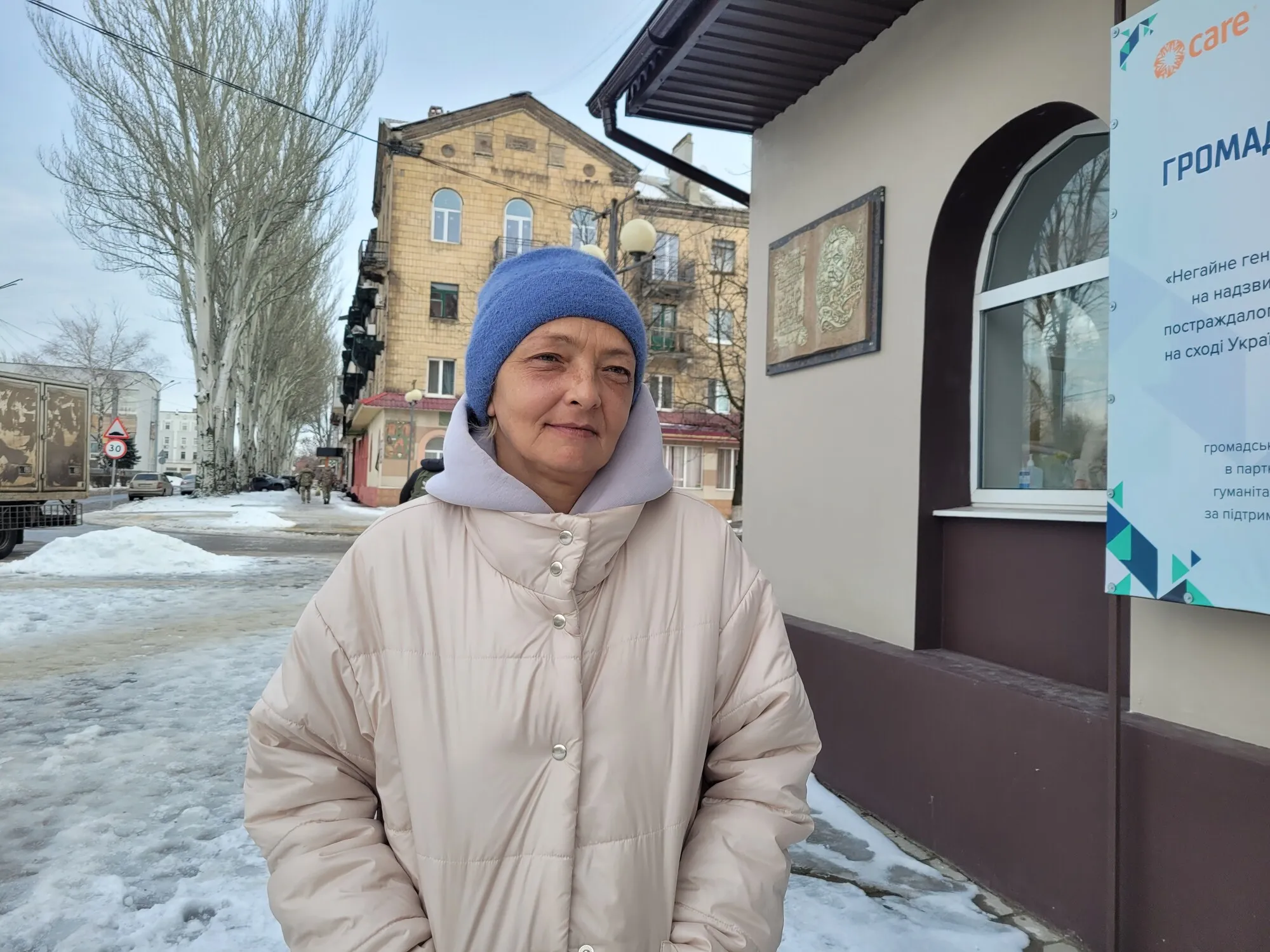Help with coping
The community center Olga and her granddaughter visit three or four times a week offers free psychosocial support, a project supported by CARE and its partners. There are several individual or group sessions, with activities for children like art classes that distract them from the fear and terror for a little while.
CARE supports a number of similar community centers across Ukraine, though the numbers are difficult to quantify due to constantly changing programs. In addition, many CARE partners have mobile teams of psychologists working with people as needs arise.
Finally, there are currently seven safe spaces for women and girls in Ukraine called Zatyshno-Space, CARE’s joint project with the NGO Vostok-Sos. These are in the cities of Vinnytsia, Zaporizhzhia, Kropyvnytskyi, Mykolaiv, Odesa, Kharkiv, and Cherkasy. In these spaces, women can receive psychological, legal, and social support.
“Since coming here, I feel much better. I don’t take as many sedatives anymore. It is like a breath of fresh air, and we remember how to live again,” Olga says.
Since the escalation of the war nearly two years ago, there have been no activities for children in her town.
“Here Darya can let out her energy and she can be a child again, even if it is only for an hour,” Olga says while children play in the background. “This helps us to continue. At night we take shifts to listen to the explosions, run and hide, and during the day we learn how to deal with the panic and how to breathe again.”
According to UNOCHA, more than 15 million people in Ukraine are expected to be in need of humanitarian assistance in 2024 as the conflict continues.



